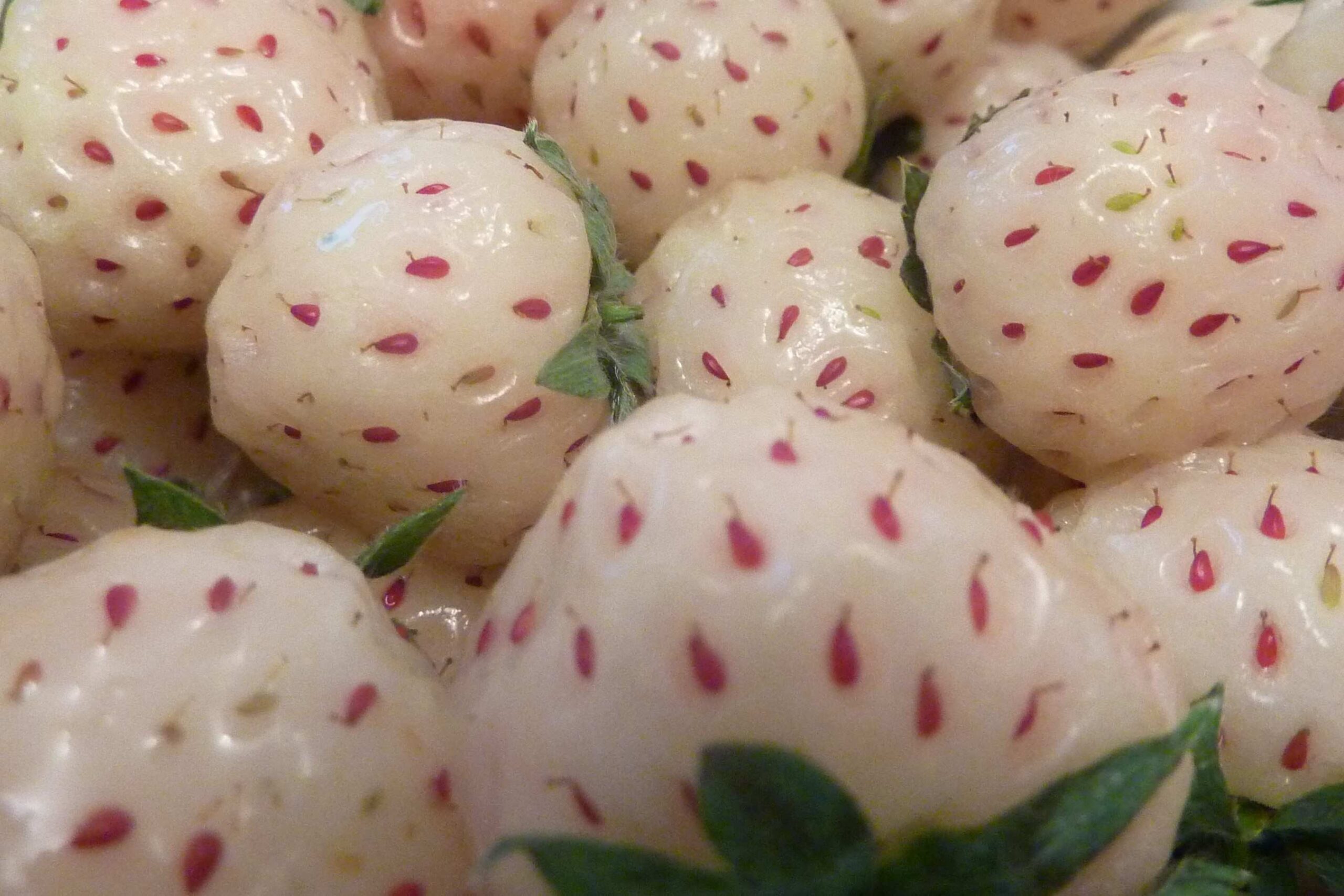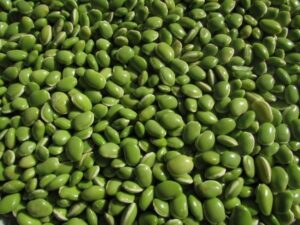Are you ready to explore a fruit that’s as intriguing as it is delicious? Meet the pineberry, a unique twist on the classic strawberry. With its pale white exterior and seeds peeking through like tiny dots of sunshine, this berry has caught the attention of health enthusiasts and foodies alike. But the question remains: are pineberries healthy? As we delve into their nutritional benefits, culinary potential, and where to find them, you’ll discover why these little gems deserve a spot in your diet. So let’s embark on this fruity journey together!
What are Pineberries?
Pineberries are a fascinating fruit that stands out in the berry family. Often described as a hybrid between strawberries and white strawberries, they have an eye-catching appearance. Their pale, almost translucent skin sets them apart from their red counterparts.
When you bite into a pineberry, you’re greeted with a flavor reminiscent of tropical fruits—think pineapple mixed with strawberry sweetness. This intriguing combination makes them not just visually appealing but also delightful to taste.
Originating from South America, these berries were developed through careful cultivation and breeding techniques. Today, they’re gaining popularity among health-conscious consumers looking for something new to add to their plates.
Despite their unusual look and flavor profile, pineberries retain many characteristics of traditional strawberries. Their unique charm continues to attract attention at farmer’s markets and specialty grocery stores alike.
The Nutritional Benefits of Pineberries
Pineberries are not only visually striking but also packed with nutritional goodness. These unique fruits boast a low-calorie count, making them an excellent choice for those watching their weight.
Rich in vitamins C and K, pineberries can boost your immune system while promoting healthy skin. Vitamin C is known for its antioxidant properties, helping to combat free radicals and inflammation.
Additionally, they contain dietary fiber, which aids digestion and keeps you feeling full longer. This can be particularly beneficial for maintaining a healthy gut.
Furthermore, the natural sugars found in pineberries provide a delightful sweetness without the guilt associated with processed snacks. Their subtle flavor profile makes them versatile for various dishes or simply enjoyed on their own.
Including pineberries in your diet can add both taste and health benefits that may surprise you.
How Do Pineberries Compare to Strawberries?
Pineberries and strawberries may look similar, but they have distinct differences. Pineberries are white with red seeds, while strawberries flaunt their vibrant red exterior.
In terms of flavor, pineberries offer a unique taste reminiscent of pineapple, hence the name. Strawberries are known for their sweet and slightly tart profile. If you prefer something different in your fruit bowl, pineberries can be an exciting alternative.
Nutritionally, both fruits provide essential vitamins. However, strawberries tend to have higher levels of vitamin C and antioxidants compared to pineberries.
Texture also plays a role; pineberries are firmer than the juicy bite of a ripe strawberry. This firmness can make them ideal for certain recipes where structure matters.
So whether you’re drawn to their aesthetic or curious about the flavor twist they bring, each berry has its place in culinary adventures.
Where to Find Pineberries
Pineberries can be a bit elusive, but finding them is part of the fun. Your best bet is to check local farmers’ markets during their peak season, typically late spring through early summer. Farmers often grow these unique fruits and love sharing their stories.
If you’re not having any luck at your local market, consider specialty grocery stores or organic food shops. Many of these retailers pride themselves on offering unusual produce and might stock pineberries when they’re in season.
Online shopping has also opened up new avenues. Some farms offer direct shipping for fresh pineberries right to your door. Websites dedicated to rare fruits may have an option as well.
Don’t forget about community-supported agriculture (CSA) programs! Joining one could connect you with growers who cultivate this delightful berry and provide you with a share throughout the growing season.
How to Incorporate Pineberries into Your Diet
Pineberries add a fun twist to your meals. Their unique flavor pairs well with many dishes. Think about tossing them into salads for a pop of color and taste.
You can blend pineberries into smoothies, creating a refreshing drink that’s both nutritious and delicious. They also make excellent toppings on yogurt or oatmeal.
Baking enthusiasts can experiment by using pineberries in muffins or cakes. The mild sweetness will surprise your guests while elevating your baked goods.
For snack time, enjoy fresh pineberries with a sprinkle of sugar or dip them in chocolate for an indulgent treat.
Don’t forget to use them as garnishes! A few sliced pieces can brighten up desserts or even savory dishes like grilled chicken.
Incorporating these delightful fruits is all about creativity and flavor exploration in the kitchen!
Potential Health Concerns with Eating Pineberries
While pineberries are often celebrated for their unique taste and nutritional benefits, there are some potential health concerns to consider.
First, those with allergies to strawberries should proceed with caution. Pineberries belong to the same family and may trigger similar allergic reactions. It’s always wise to consult a healthcare professional if you’re unsure about food sensitivities.
Furthermore, these berries contain natural sugars. Individuals managing blood sugar levels or those with diabetes might need to monitor their intake closely. Even healthy foods can impact glucose levels when consumed in excess.
Sourcing is crucial. Pineberries aren’t as common as traditional strawberries, which means they could be treated differently during cultivation or transport. Always opt for organic options when possible to reduce exposure to pesticides or chemicals that may linger on the fruit’s surface.
Conclusion: Are Pineberries Worth Adding to Your Diet?
Are pineberries worth adding to your diet? The answer hinges on a few key factors. First, they offer a unique flavor profile that can diversify your fruit intake. With their sweet yet slightly tart taste, they bring something fresh to the table.
Nutritionally, pineberries are rich in vitamins and antioxidants. They provide dietary fiber and essential nutrients, contributing positively to overall health. When you compare them with strawberries, you’ll find similarities but also distinct differences in taste and appearance that might appeal to those looking for new experiences in their meals.
Finding these berries may require some effort since they’re not as commonly available as other fruits. However, specialty stores often carry them when they’re in season. Online markets might be another option if local shops don’t stock them.
Incorporating pineberries into your diet is straightforward. Add them to smoothies, salads or enjoy them on their own for a refreshing snack. Just keep an eye out for any potential allergic reactions if you’re trying them for the first time.
While there are no major health concerns associated with eating pineberries, awareness of individual allergies is always prudent.
If you’re adventurous with food and keen on exploring new flavors while benefiting from nutritional perks, giving pineberries a shot could be worthwhile.




